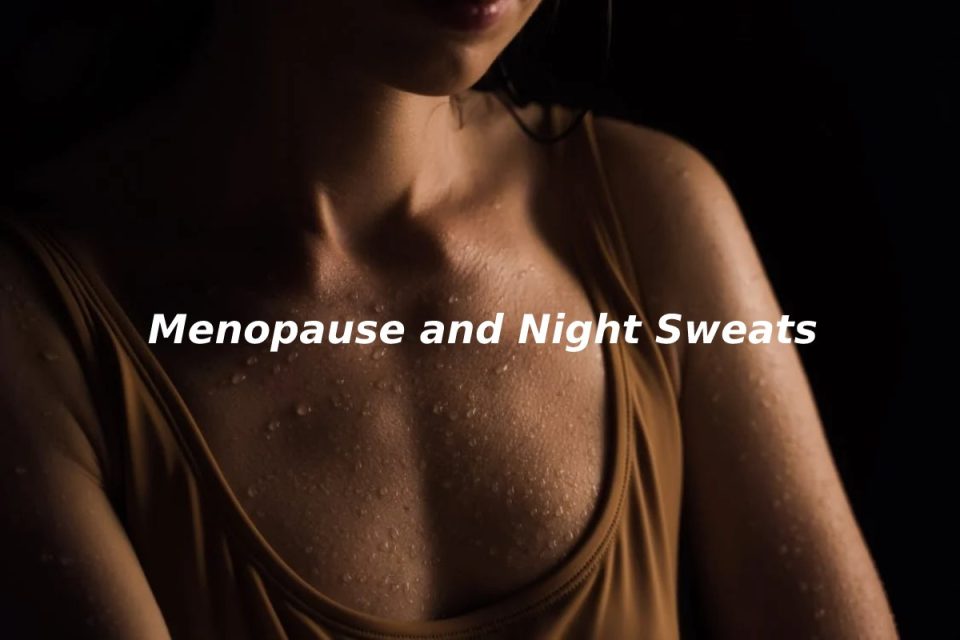Table of Contents
Introduction
If you wake up in the mid of the night dripping sweat, many people sweat due to hormonal fluctuations during menopause or hyperhidrosis during sleep.
Night sweating is not associated with the environment in which a person is present, such as a high-temperature room, but is usually caused by hormonal fluctuations in the body or a side effect of medications.
In both cases, it can have a significant effect on sleep. Night sweats often wake people up and may force them to change clothes or sheets so they can sleep again comfortably.
Here are the most common reasons behind night sweating and when you should visit your doctor:
Menopause
Night sweats are often associating with hormonal fluctuations during menopause and the period before.
More than 80% of women in the premenopausal period and menopause suffer from hot waves or sudden and severe warmth. When these conditions occur at night, they can cause night sweats.
Menopause occurs 12 months after a woman’s last monthly cycle, usually between 45 and 55 years old. The premenopausal period occurs from 7 to 14 years before reaching what is known as menopause.
Specifically, low estrogen, which occurs during the premenopausal period, is associated with night sweats because it affects body temperature regulation.
Night sweating during menopause is not a cause for concern, but it may be uncomfortable. If you have night sweats during the premenopausal period, talk to your doctors about treating symptoms with medications that help replace estrogen.
Hormonal Disorders
Hormonal disorders can make it difficult for the body to regulate its average temperature, which can cause night sweats.
Body temperature regulates by the thalamus, an area of the brain that produces hormones. When hormones are unbalanced, it sometimes means that the hypothalamus cannot control the temperature correctly.
Hormonal disorders that can disturb body temperature and cause night sweats include:
Hyperthyroidism: This condition leads to excessive thyroid hormone production, which increases sweating, causing night sweating.
Troop tumour: A tumour in the adrenal gland that makes it produces a lot of hormones. Symptoms can include night sweats and a high heart rate.
If you have other symptoms of hormonal imbalance, such as weight changes or headaches, talk to your doctor about these symptoms.
Infections and Infections
If you have a viral or bacterial infection, your body raises its internal temperature to fight the condition, which causes a fever.
This upsurge in body temperature can lead to sweating and night sweating, common fever symptoms.
Infections as diverse as HIV, tuberculosis and the number of infectious white blood cells can cause night sweats.
These conditions can produce chemicals called cytokines that fight infection. Cytokines cause fever and night sweats. If you have fever and night sweats, it’s best to see your doctor about the type of infection you’re experiencing.
How Do You Deal with Heat Flashes During Menopause?
Some of these methods are hormone therapy, which includes taking estrogen to treat disturbing symptoms during menopause.
In other cases, doctors recommend treatments consisting of low doses of antidepressants. However, this treatment is ineffective in controlling acute heat donations such as hormone therapy, let alone the appearance of different side effects such as dizziness, nausea, dry mouth, and weight gain.
In some cases, however, doctors prescribe anticonvulsants to relieve these symptoms in some women.
More recently, doctors have been using asterisk block technology to treat more severe conditions, including anaesthesia at the neck level.
It is unnecessary to treat heat flashes during menopause using medications; in most cases, home remedies are sufficient.
Home remedies include:
- A healthy diet.
- Avoid spicy foods.
- Evade excessive coffee and fatty foods.
- Avoid smoking.
- Wear light clothes.
- Ventilation of all rooms.
Finally, many specialists recommend continuous relaxation exercises, such as yoga or Tai Chi Xuan, as stress exacerbates heat flashes.


